Engineering With Nature® in Fluvial Systems
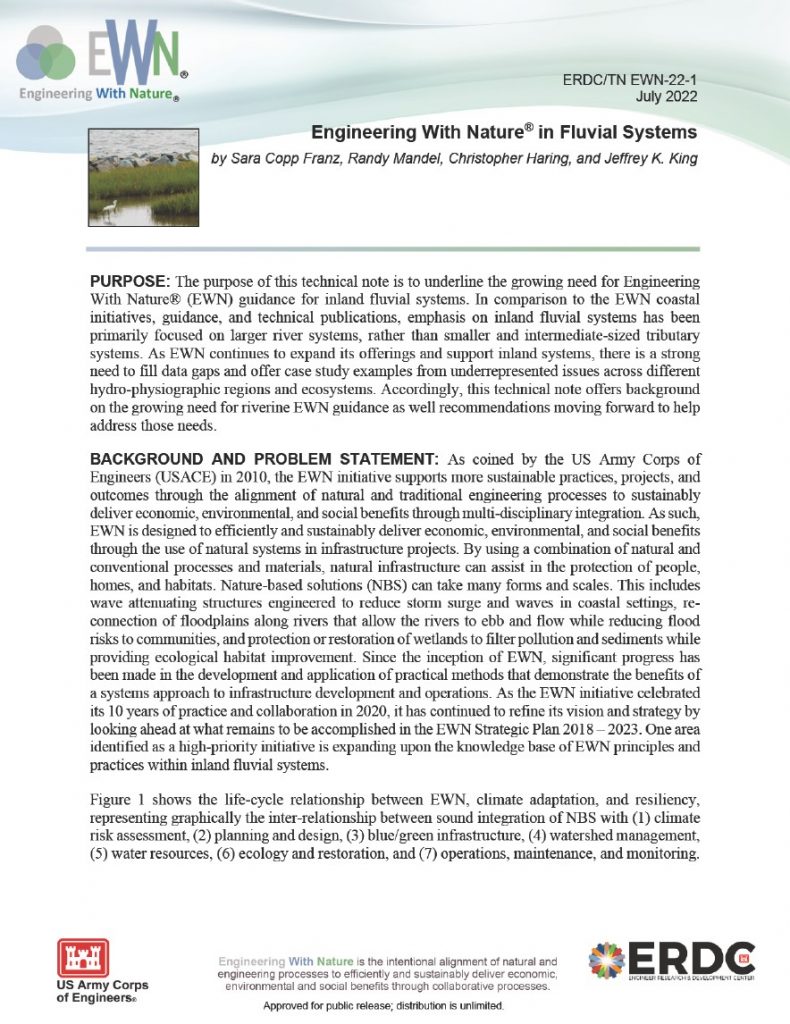
ERDC EWN Technical Note This technical note stresses the increased need for EWN guidance for inland fluvial systems. It offers background on the growing need for riverine EWN guidance as well recommendations moving forward to help address those needs.
Engineering With Nature® Principles in Action: Islands
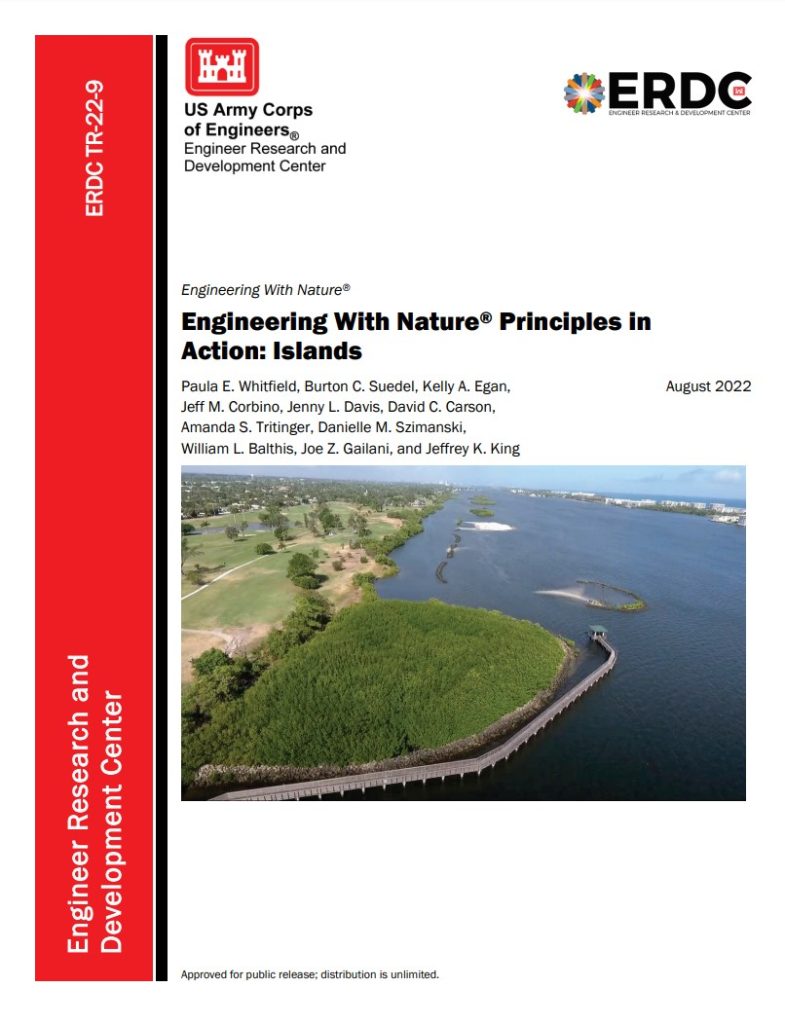
The Engineering With Nature® (EWN) Program supports nature-based solutions that reduce coastal-storm and flood risks while providing environmental and socioeconomic benefits. Combining the beneficial use of dredged sediments with the restoration or creation of islands increases habitat and recreation, keeps sediment in the system, and reduces coastalstorm and flood impacts. Given the potential advantages of […]
Enhancing Benefits Evaluation for Water Resources Projects Towards a More Comprehensive Approach for Nature-Based Solutions: Evolution of Benefits Evaluation and Prioritization of Water Resources Projects
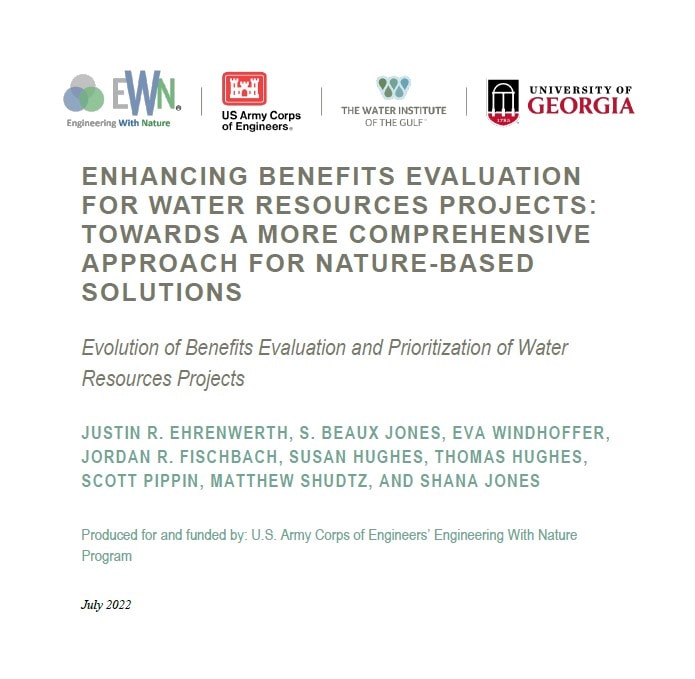
The USACE EWN® Program has partnered with The Water Institute of the Gulf to analyze past and current benefits evaluation approaches to identify practical options for improving federal practice for evaluating the economic, environmental, and social benefits of natural infrastructure and nature-based solutions. This is the first in a series of products that will identify […]
Failure modes in cedar tree revetments: Observations on rivers and streams in eastern Kansas, USA

River Research and Applications A cedar tree revetment is a bioengineering technique intended to stabilize eroding stream banks using longitudinally placed cedar trees. This technique, which has been implemented on many rivers and streams across the United States, has been proposed as a less expensive, ecologically compatible bank stabilization method. The limited documentation of these […]
New Initiatives Improve Wetland Restoration Outcomes: Engineering with Nature and the Use of Natural and Nature-Based Features
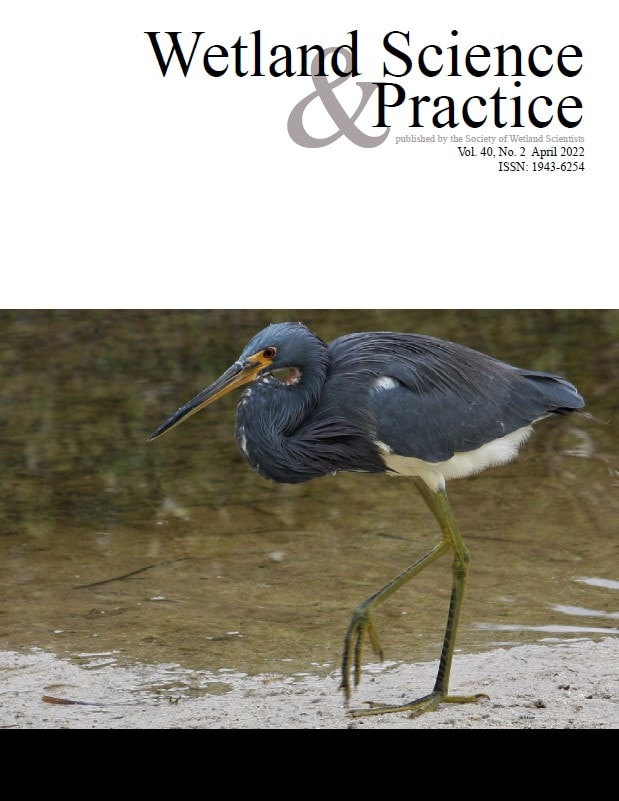
Wetland Science & Practice For some time, the U.S. Army Corps of Engineers has supported an initiative called Engineering With Nature® (EWN) and the application of Natural and Nature-Based Features (NNBF), both of which promote the incorporation of natural processes and structures into the design and operation of ecological restoration and flood risk reduction projects. Each […]
Supporting Mission Resilience through Natural Infrastructure
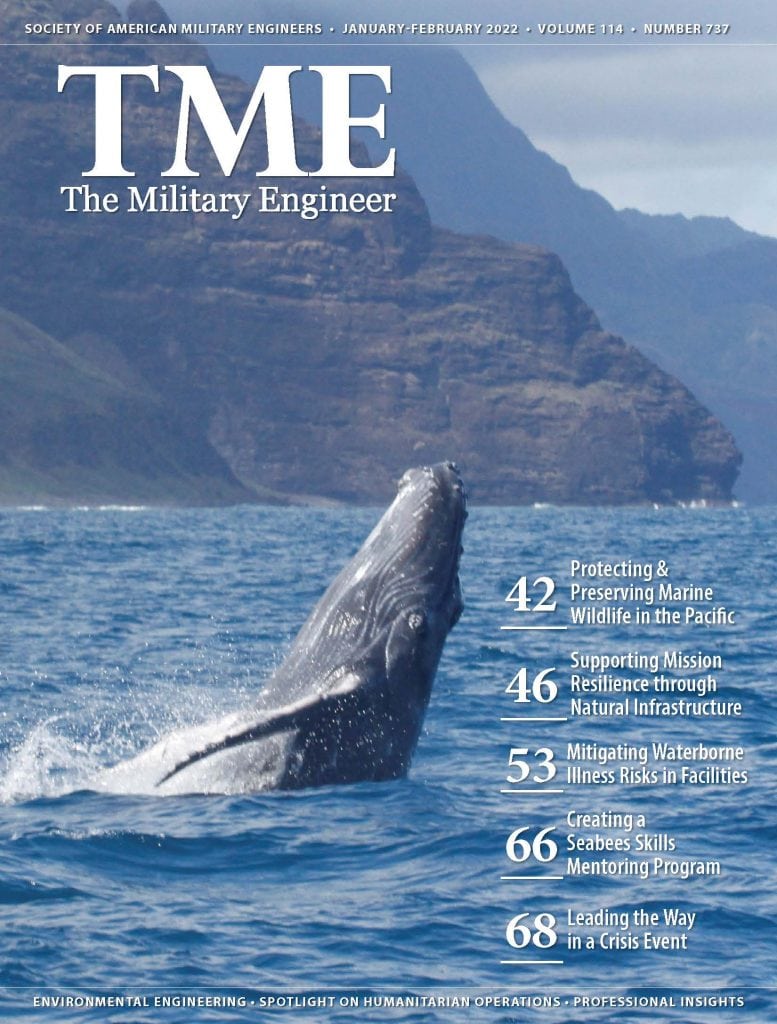
The Military Engineer Many of the challenges and opportunities that the Department of Defense (DOD) will face throughout the balance of the 21st century relate to building and sustaining the infrastructure needed for mission resilience. Currently, DOD and its 3 million team members operate on more than 25-million-acres and nearly 5,000 sites in different regions, […]
Engineering With Nature + Landscape Architecture Tikigaq / Point Hope
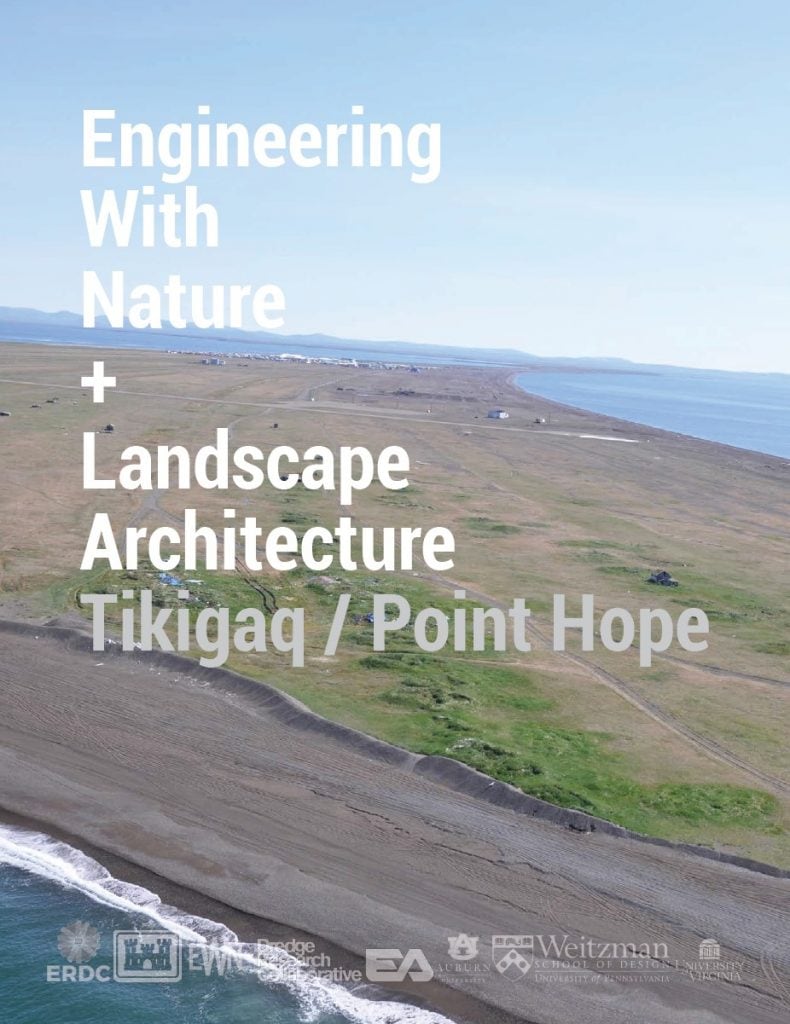
This report outlines a series of research and analytical exercises conducted by our DRC team intended to assist the ongoing efforts to understand and characterize the cultural and ecological histories and processes in and around the city and village of Point Hope (Tikigaq) Alaska. Following ths analysis, our team assisted in the development and communication […]
Walter Marine and Atlantic Reefmaker Wave Attenuator
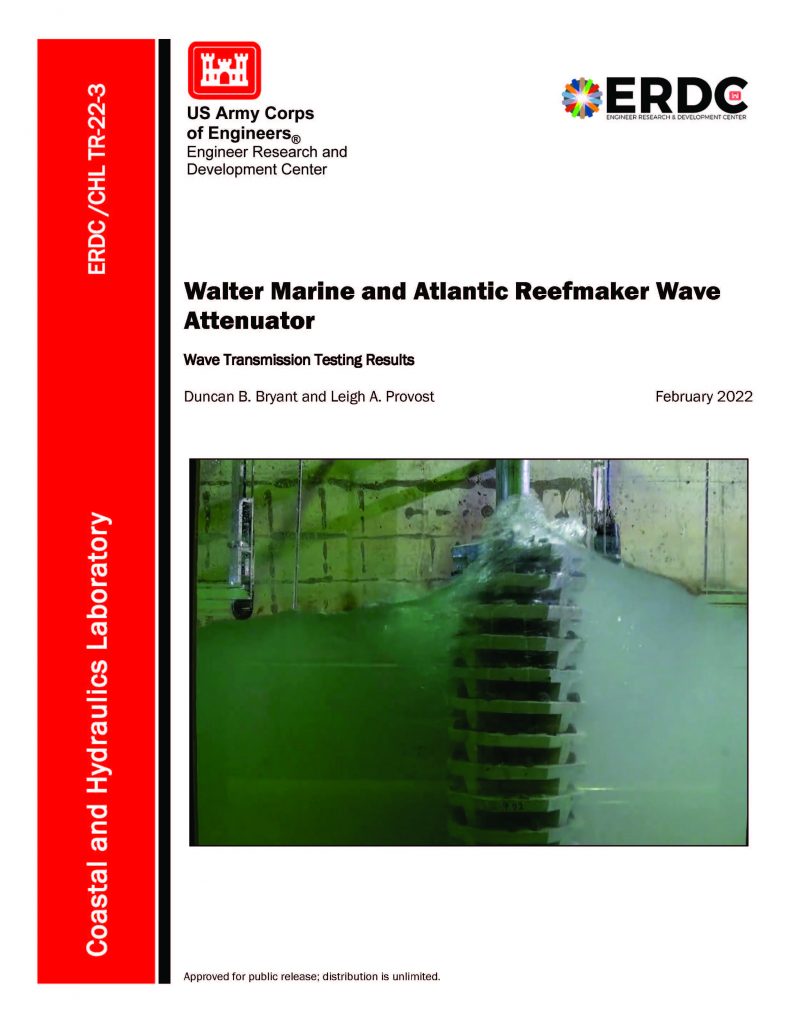
As part of a testing service agreement with Walter Marine and Atlantic Reefmaker, a 1:5.2 physical model of the Reefmaker Wave Attenuator was constructed and tested by the US Army Engineer Research and Development Center to evaluate its influence on wave attenuation. The tested prototype wave periods ranged from 2.5 to 8 sec with prototype […]
Engineering With Nature: The Role of Mangroves in Coastal Protection
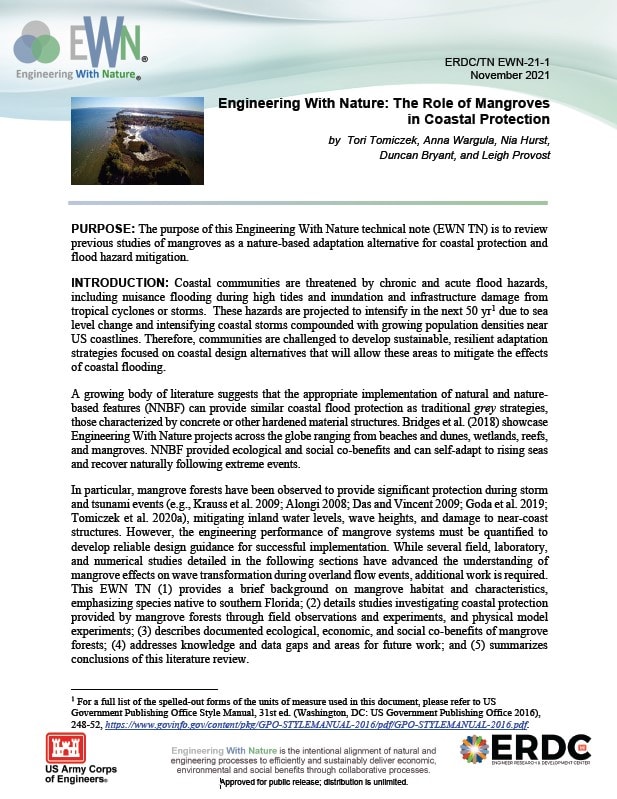
ERDC EWN Technical Note The purpose of this Engineering With Nature technical note (EWN TN) is to review previous studies of mangroves as a nature-based adaptation alternative for coastal protection and flood hazard mitigation.
Infrastructure investment must incorporate Nature’s lessons in a rapidly changing world
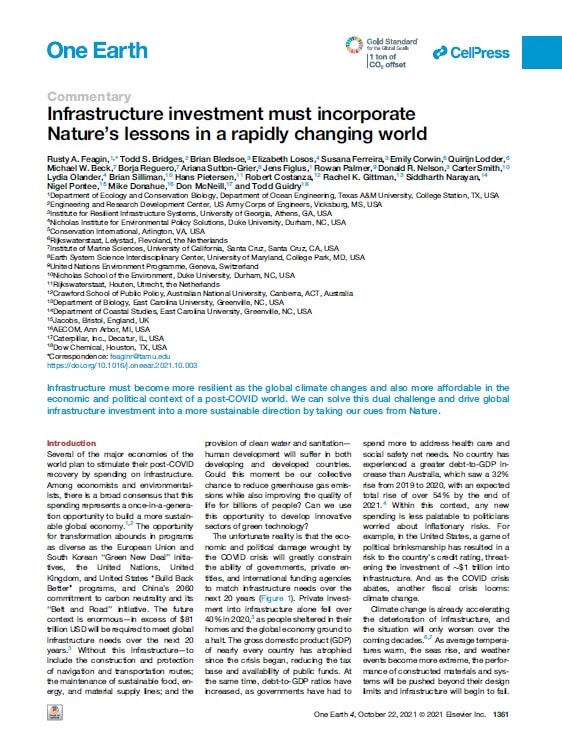
One Earth Several of the major economies of the world plan to stimulate their post-COVID recovery by spending on infrastructure. Among economists and environmentalists, there is a broad consensus that this spending represents a once-in-a-generation opportunity to build a more sustainable global economy. The opportunity for transformation abounds in programs as diverse as the European […]

